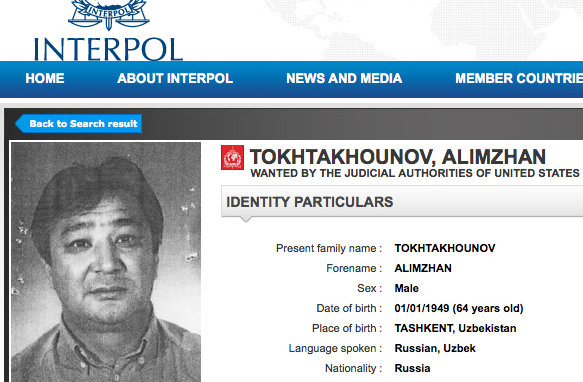DISLOYAL, THE FOREWORD: THE REAL REAL DONALD TRUMP
The President of the United States wanted me dead.
Or, let me say it the way Donald Trump would: He wouldn’t mind if I was dead. That was how Trump talked. Like a mob boss, using language carefully calibrated to convey his desires and demands, while at the same time employing deliberate indirection to insulate himself and avoid actually ordering a hit on his former personal attorney, confidant, consigliere, and, at least in my heart, adopted son.
Driving south from New York City to Washington, DC on I-95 on the cold, gray winter morning of February 24th, 2019, en route to testify against President Trump before both Houses of Congress, I knew he wanted me gone before I could tell the nation what I know about him. Not the billionaire celebrity savior of the country or lying lunatic, not the tabloid tycoon or self-anointed Chosen One, not the avatar @realdonaldtrump of Twitter fame, but the real real Donald Trump—the man very, very, very few people know.
If that sounds overly dramatic, consider the powers Trump possessed and imagine how you might feel if he threatened you personally. Heading south, I wondered if my prospects for survival were also going in that direction. I was acutely aware of the magnitude of Trump’s fury aimed directly at my alleged betrayal. I was wearing a baseball cap and sunglasses and I kept the speedometer at eighty, avoiding the glances of other drivers. Trump’s theory of life, business and politics revolved around threats and the prospect of destruction—financial, electoral, personal, physical—as a weapon. I knew how he worked because I had frequently been the one screaming threats on his behalf as Trump’s fixer and designated thug.
Ever since I had flipped and agreed to cooperate with Robert Mueller and the Special Counsel’s Office, the death threats had come by the hundreds. On my cell phone, by email, snail mail, in tweets, on Facebook, enraged Trump supporters vowed to kill me, and I took those threats very seriously. The President called me a rat and tweeted angry accusations at me, as well as my family. All rats deserve to die, I was told. I was a lowlife Judas they were going to hunt down. I was driving because I couldn’t fly or take the train to Washington. If I had, I was sure I would be mobbed or attacked. For weeks, walking the streets of Manhattan, I was convinced that someone was going to ram me with their car. I was exactly the person Trump was talking about when he said he could shoot and kill someone on 5th Avenue and get away with it.
My mind was spinning as I sped towards DC. For more than a decade, I had been at the center of Trump’s innermost circle. When he came to my son’s bar mitzvah, a generous gesture that I found touching, he told my then thirteen-year-old boy that his Dad was the greatest and that, if he wanted to work at the Trump Organization when he grew up, there would always be a position for him.
“You’re family,” Trump said to my son and I.
And I fucking believed him!
Pulling over at a service plaza, I gassed up and headed inside for a coffee, black no sugar. I looked around to see if I was under surveillance or being followed; a sense of dread consuming my thoughts. Who was that FBI-type in the gray coat or the muscle-bound dude a few paces behind me? The notion that I was being followed or stalked may have seemed crazy; but it was also perfectly logical. I wasn’t just famous—I was perhaps the most infamous person in the country at the time, seen by millions upon millions as a traitor. President Trump controlled all the levers of the Commander in Chief and all the overt and covert powers that come with the highest office in the country. He also possessed a cult-like hold over his supporters, some of them demonstrably unhinged and willing to do anything to please or protect the President. I knew how committed these fanatics were because I’d been one of them: an acolyte obsessed with Donald J. Trump, a demented follower willing to do anything for him, including, as I vowed once to a reporter, to take a bullet.
On the eve of my public testimony, lying in the still of the night in my hotel room, taking a bullet assumed a completely different meaning. That was the level of ruination I had brought upon myself- complete and total destruction. I closed my eyes, wishing the nightmare would end. When I started working for Trump I had been a multi-millionaire lawyer and businessman, and now I was broke and broken; a convicted, disgraced and disbarred former attorney about to testify against the President on live television before an audience of more than 15 million Americans.
“Hey, Michael Cohen, do your wife and father-in-law know about your girlfriends?” GOP Representative Matt Gaetz tweeted at me that night, to cite just one example of the juvenile idiocy and menace aimed in my direction. “I wonder if she’ll remain faithful when you’re in prison. She’s about to learn a lot…”
Sitting in the green room on the morning of my testimony before the House Oversight Committee, I began to feel the enormous weight of what was about to happen. For some reason, after all that I’d been through, and all I’d put my family and the country through, waiting in that room was the moment when the gravity of what was about to happen truly hit home. The United States was being torn apart, its political and cultural and mental well-being threatened by a clear and present danger named Donald Trump, and I had played a central role in creating this new reality. To half of Americans, it seemed like Trump was effectively a Russian-controlled fraud who had lied and cheated his way to the White House; to the other half of Americans, to Trump’s supporters, the entire Russian scandal was a witch hunt invented by Democrats still unable to accept the fact that Hillary Clinton had lost fair and square in the most surprising upset in the history of American presidential elections.
Both sides were wrong. I knew that the reality was much more complicated and dangerous. Trump had colluded with the Russians, but not in the sophisticated ways imagined by his detractors. I also knew that the Mueller investigation was not a witch-hunt. Trump had cheated in the election, with Russian connivance, as you will discover in these pages, because doing anything—and I mean anything—to “win” has always been his business model and way of life. Trump had also continued to pursue a major real estate deal in Moscow during the campaign. He attempted to insinuate himself into the world of President Vladimir Putin and his coterie of corrupt billionaire oligarchs. I know because I personally ran that deal and kept Trump and his children closely informed of all updates, even as the candidate blatantly lied to the American people saying, “there’s no Russian collusion, I have no dealings with Russia…there’s no Russia.”
The time to testify nearing, I asked the sergeant-at-arms for a few minutes of privacy and the room was cleared. Sitting alone, my thoughts and heart racing, I had the first panic attack of my life. I struggled to breathe and stand. The pressure was too much; I had contemplated suicide in recent weeks, as a way to escape the unrelenting insanity. Reaching for a seat, I started to cry, a flood of emotions overwhelming me: fear, anger, dread, anxiety, relief, terror. It felt something like when I was in the hospital awaiting the birth of my daughter and son, with so many powerful and unprecedented emotions welling up in anticipation. Only now I was that child being born and all of the pain and blood were part of the birth of my new life and identity.
Trying to pull myself together, I went to the private bathroom and checked my eyes to see if they were bloodshot or puffy. To my relief, they weren’t. I splashed my face with cold water and felt a calm coming over me, and then a surge of confidence and adrenaline. I had pled guilty to multiple federal crimes, including lying to Congress, but I was there to tell the truth, the whole truth, and nothing but the truth. I knew that Trump and the Republican House members would want me to hesitate, falter, show weakness, even break down. They wanted me to look unreliable, shifty, and uncertain about the truth and myself. This was blood sport and they wanted me to cower. I wasn’t going to give them the satisfaction, I decided. I was going to nail it.
“Showtime,” the sergeant-at-arms called out, opening the door. “You’re on Mr. Cohen.”
One deep breath and I stepped into the hallway, into a crush of photographers and TV cameras and the craziness of wall-to-wall national obsession. I made my way alone through the jostle and shove of the surging crowd as I experienced the out-of-body sensation of seeing myself on television screens walking in to testify. It was truly bizarre to be at the epicenter of American history at that moment, to personify so many fears and resentments, to be the villain or savior, depending on your point of view, to speak truth to power in an age when truth itself was on trial. There I was, watching myself on TV, the Michael Cohen everyone had an opinion about: liar, snitch, idiot, bully, sycophant, convicted criminal, the least reliable narrator on the planet.
So, please permit me to reintroduce myself in these pages. The one thing I can say with absolute certainty is that whatever you may have heard or thought about me, you don’t know me or my story or the Donald Trump that I know. For more than a decade, I was Trump’s first call every morning and his last call every night. I was in and out of Trump’s office on the 26th floor of the Trump Tower as many as fifty times a day, tending to his every demand. Our cell phones had the same address books, our contacts so entwined, overlapping and intimate that part of my job was to deal with the endless queries and requests, however large or small, from Trump’s countless rich and famous acquaintances. I called any and all of the people he spoke to, most often on his behalf as his attorney and emissary, and everyone knew that when I spoke to them, it was as good as if they were talking directly to Trump.
Apart from his wife and children, I knew Trump better than anyone else did. In some ways, I knew him better than even his family did because I bore witness to the real man, in strip clubs, shady business meetings, and in the unguarded moments when he revealed who he really was: a cheat, a liar, a fraud, a bully, a racist, a predator, a con man.
There are reasons why there has never been an intimate portrait of Donald Trump, the man. In part, it’s because he has a million acquaintances, pals and hangers on, but no real friends. He has no one he trusts to keep his secrets. For ten years, he certainly had me, and I was always there for him, and look what happened to me. I urge you to really consider that fact: Trump has no true friends. He has lived his entire life avoiding and evading taking responsibility for his actions. He crushed or cheated all who stood in his way, but I know where the skeletons are buried because I was the one who buried them. I was the one who most encouraged him to run for president in 2011, and then again in 2015, carefully orchestrating the famous trip down the escalator in Trump Tower for him to announce his candidacy. When Trump wanted to reach Russian President Vladimir Putin, via a secret back channel, I was tasked with making the connection in my Keystone Kop fashion. I stiffed contractors on his behalf, ripped off his business partners, lied to his wife Melania to hide his sexual infidelities, and bullied and screamed at anyone who threatened Trump’s path to power. From golden showers in a sex club in Vegas, to tax fraud, to deals with corrupt officials from the former Soviet Union, to catch and kill conspiracies to silence Trump’s clandestine lovers, I wasn’t just a witness to the president’s rise—I was an active and eager participant.
To underscore that last crucial point, let me say now that I had agency in my relationship with Trump. I made choices along the way—terrible, heartless, stupid, cruel, dishonest, destructive choices, but they were mine and constituted my reality and life. During my years with Trump, to give one example, I fell out of touch with my sisters and younger brother, as I imagined myself becoming a big shot. I’d made my fortune out of taxi medallions, a business viewed as sketchy if not lower class. On Park Avenue, where I lived, I was definitely nouveau riche, but I had big plans that didn’t include being excluded from the elite. I had a narrative: I wanted to climb the highest mountains of Manhattan’s skyscraping ambition, to inhabit the world from the vantage point of private jets and billion-dollar deals, and I was willing to do whatever it took to get there. Then there was my own considerable ego, short temper, and willingness to deceive to get ahead, regardless of the consequences.
As you read my story, you will no doubt ask yourself if you like me, or if you would act as I did, and the answer will frequently be no to both of those questions. But permit me to make a point: If you only read stories written by people you like, you will never be able to understand Donald Trump or the current state of the American soul. More than that, it’s only by actually understanding my decisions and actions that you can get inside Trump’s mind and understand his worldview. As anyone in law enforcement will tell you, it’s only gangsters who can reveal the secrets of organized crime. If you want to know how the mob really works, you’ve got to talk to the bad guys. I was one of Trump’s bad guys. In his world, I was one hundred percent a made man.
Before I could read my opening statement to the Oversight Committee on the day of my public testimony, the Republicans started to play procedural games. It was clearly an attempt to rattle me, I thought, a spectacle that only demeaned them and the institution itself. As I started to answer questions, it was evident that the Republicans didn’t want to hear a word I had to say, no matter how true or how critical to the future of the country. For all the hard truths I spoke about Trump, I wasn’t entirely critical of him, nor will I be in these pages. I said I know Trump as a human being, not a cartoon character on television, and that means I know he’s full of contradictions.
“Mr. Trump is an enigma,” I testified to the committee. “He is complicated, as am I. He does both good and bad, as do we all. But the bad far outweighs the good, and since taking office, he has become the worst version of himself. He is capable of behaving kindly, but he is not kind. He is capable of committing acts of generosity, but he is not generous. He is capable of being loyal, but he is fundamentally disloyal.”
“Liar, liar, pants on fire,” one of the Republicans taunted me, perfectly expressing the stupidity and lunacy of his party’s antics. To drive this point home, they actually made a sign with a picture of me on it. In bold letters, the sign proclaimed, “Liar, Liar Pants on Fire.”
I recognized the childish games, replete with a Trump-like slogan, because I had played them myself. In the pitiful sight of Republicans throwing aside their dignity and duty in an effort to grovel at Trump’s feet, I saw myself and understood their motives. My insatiable desire to please Trump to gain power for myself, the fatal flaw that led to my ruination, was a Faustian bargain: I would do anything to accumulate, wield, maintain, exert, exploit power. In this way, Donald Trump and I were the most alike; in this naked lust for power, the President and I were soul mates. I was so vulnerable to his magnetic force because he offered an intoxicating cocktail of power, strength, celebrity, and a complete disregard for the rules and realities that govern our lives. To Trump, life was a game and all that mattered was winning. In these dangerous days, I see the Republican Party and Trump’s followers threatening the constitution—which is in far greater peril than is commonly understood—and following one of the worst impulses of humankind: the desire for power at all costs.
“To those who support the President and his rhetoric, as I once did, I pray the country doesn’t make the same mistakes as I have made or pay the heavy price that my family and I are paying,” I testified to Congress, exhorting them to learn from my example.
“Given my experience working for Mr. Trump, I fear that if he loses the election in 2020 that there will never be a peaceful transition of power,” I concluded. “This is why I agreed to appear before you today.”
Representative Elijah Cummings had the final word, as chair of the Oversight Committee. I sat in silence, listening to this now deceased man with decades of experience in the civil rights movement and other forms of public service, who as a lawyer had represented disgraced lawyers like me. He understood that even the least of us deserve the opportunity to seek penance, redemption and a second chance in life. Cummings was the lone politician I encountered in all my travails who took an interest in me as a human being. When I reported to serve my sentence, he even took steps to ensure my security in prison. It was a selfless act of kindness for which I will always be grateful.
“I know this has been hard,” Cummings said to me and the nation, his words hitting me like a kick in the gut. “I know you’ve faced a lot. I know that you are worried about your family. But this is a part of your destiny. And hopefully this portion of your destiny will lead to a better Michael Cohen, a better Donald Trump, a better United States of America, and a better world. And I mean that from the depths of my heart.”
Representative Cummings concluded by saying, “We are better than this.”
Amen, I thought.
Now, sitting alone in an upstate New York prison, wearing my green government-issued uniform, I’ve begun writing this story longhand on a yellow legal pad. I often wrote before dawn so not to be disturbed in my thoughts when my fellow inmates awoke. I had to report to the sewage treatment plant where some of us worked for a wage of $8 a month. As the months passed by and I thought about the man I knew so well, I became even more convinced that Trump will never leave office peacefully. The types of scandals that have surfaced in recent months will only continue to emerge with greater and greater levels of treachery and deceit. If Trump wins another four years, these scandals will prove to only be the tip of the iceberg. I’m certain that Trump knows he will face prison time if he leaves office, the inevitable cold Karma to the notorious chants of “Lock Her Up!” But that is the Trump I know in a nutshell. He projects his own sins and crimes onto others, partly to distract and confuse but mostly because he thinks everyone is as corrupt and shameless and ruthless as he is; a poisonous mindset I know all too well. Whoever follows Trump into the White House, if the President doesn’t manage to make himself the leader for life, as he has started to joke about—and Trump never actually jokes- will discover a tangle of frauds and scams and lawlessness. Trump and his minions will do anything to cover up that reality, and I mean anything.
Watching Trump on the evening news in the prison rec room, I almost feel sorry for him. I know him so well and I know his facial tics and tells; I see the cornered look in his eyes as he flails and rants and raves, searching for a protector and advocate, someone willing to fight dirty and destroy his enemies. I see the men who have replaced me and continue to forfeit their reputations by doing the President’s bidding, no matter how dishonest or sleazy or unlawful. Rudy Guiliani, William Barr, Jared Kushner and Mike Pompeo are Trump’s new wannabe fixers, sycophants willing to distort the truth and break the law in the service of the Boss. All this will be to no avail. Trump doesn’t want to hear this, and he will certainly deny it, but he’s lost without his original bulldog lawyer Roy Cohn, or his other former pitbull and personal attorney, Michael Cohen.
During my testimony, Republican House members repeatedly asked me to promise that I wouldn’t write a book. I refused, repeatedly. It was another way of saying I shouldn’t be permitted to tell my story, in essence giving up my First Amendment rights. It was a clear sign of desperation and fear. I have lost many things as a consequence of my decisions and mistakes, including my freedom, but I still retain the right to tell this story about the true threat to our nation and the urgent message for the country it contains.
One last thing I can say with great confidence, as you turn the page and meet the real real Donald Trump for the first time: This is a book the President of the United States does not want you to read.
Michael Cohen
Otisville Federal Prison, Otisville, New York, March 11, 2020
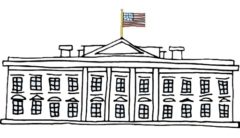
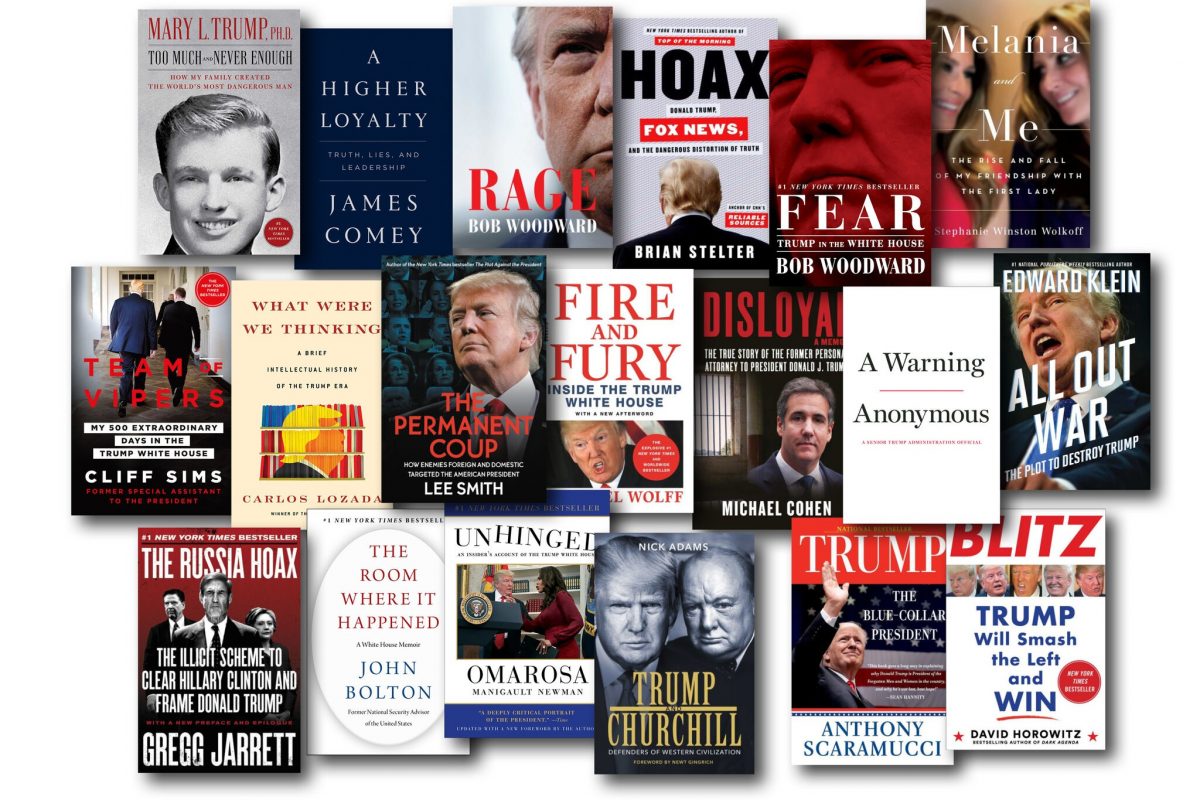

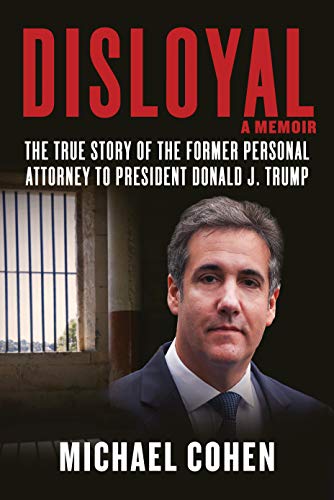
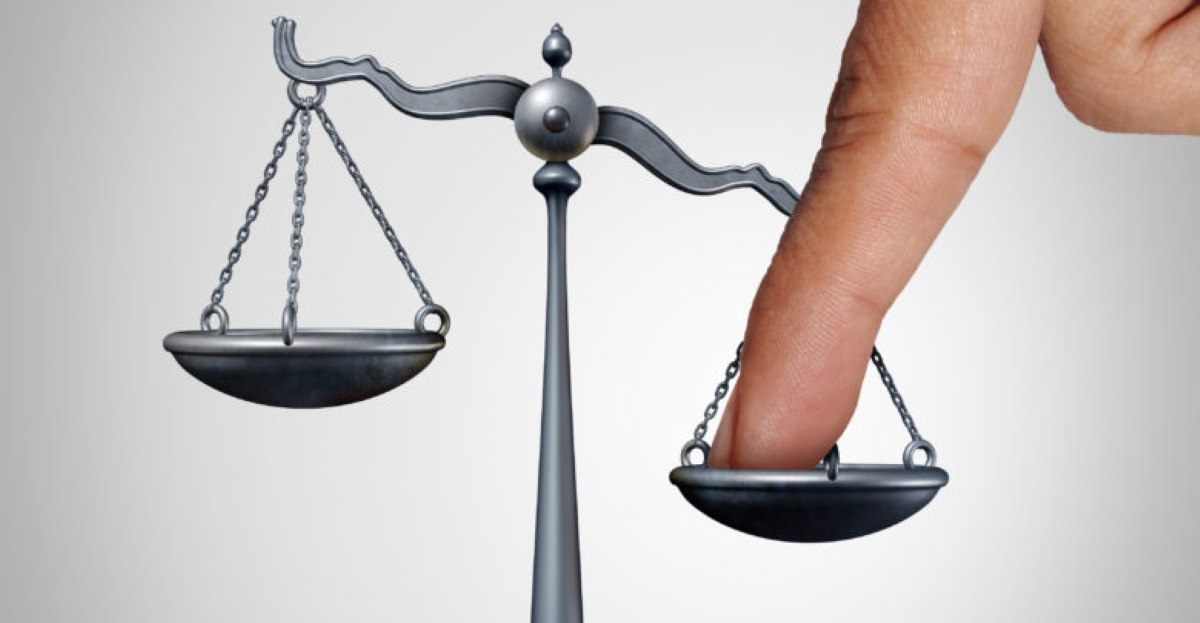
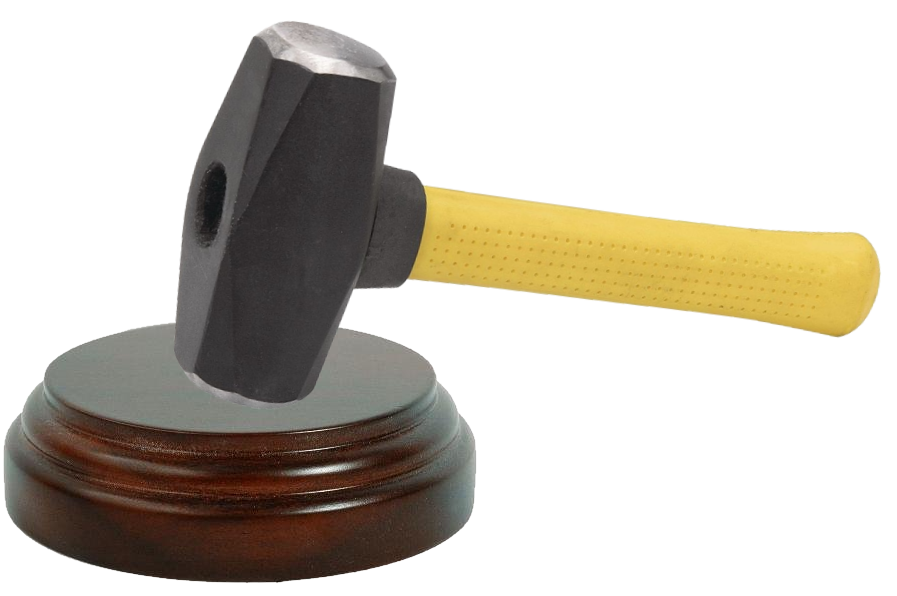 Chief Justice John G. Roberts Jr.’s ongoing struggle to assure Americans that “We do not have Obama judges or Trump judges.”
Chief Justice John G. Roberts Jr.’s ongoing struggle to assure Americans that “We do not have Obama judges or Trump judges.”